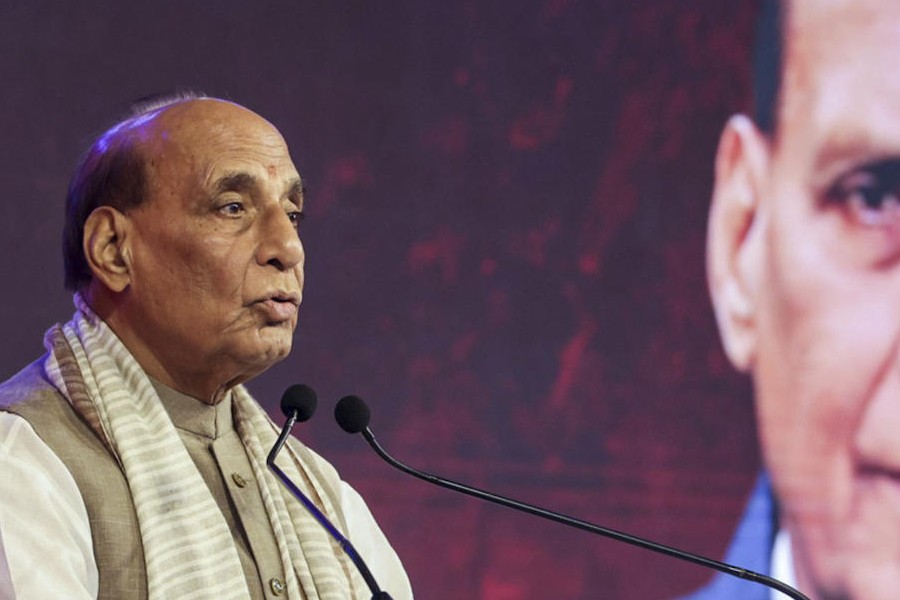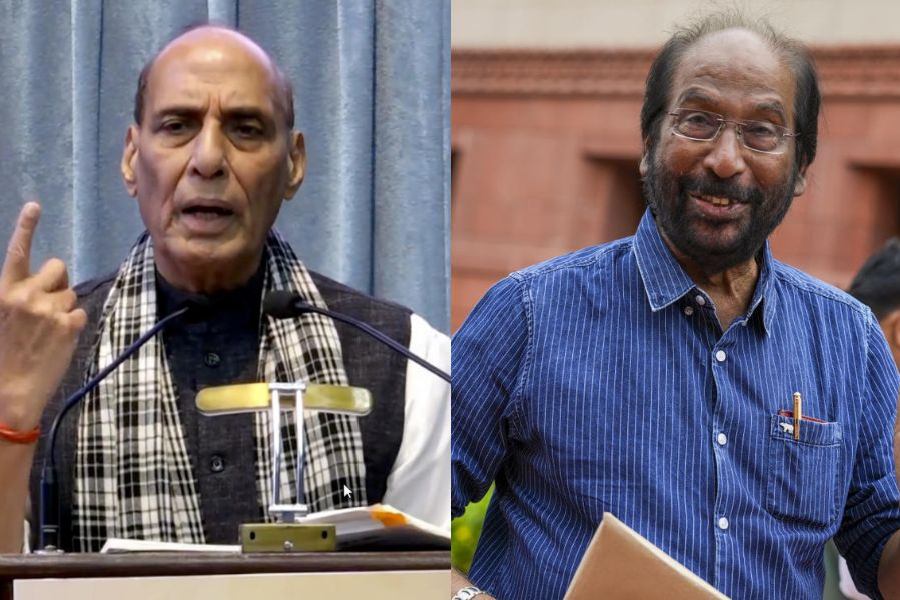In today's era of terrorism, regional conflicts and tariff war, India's military can't afford to depend on uncertain foreign supplies and self-reliance in defence is central to shield the country's strategic autonomy, Defence Minister Rajnath Singh said on Saturday.
In an address at a conclave, Singh said the government plans to provide complete aerial security to all important installations across the country in the next 10 years under the proposed Sudarshan Chakra air defence system that will feature both defensive and offensive elements to deal with any enemy threats.
The defence minister also announced that India has taken up the challenge of developing a powerful indigenous aero-engine, adding that preparations for this critical project are now almost complete and the work will soon be visible.
Singh, without naming the US, said many developed nations are resorting to protectionist measures, with situations of "trade war and tariff war becoming increasingly serious".
"India seeks no enemies but will not compromise its interests. The welfare of our people, farmers and small businesses is our top priority." "The more pressure the world applies, the stronger India emerges," he said, in significant comments that came amid the strain in India-US ties over issues relating to trade and tariff.
At the same time, he asserted that India's policy of becoming self-reliant in defence is not protectionism.
"This is not protectionism. It is about sovereignty. When a nation of youth, energy, technology and possibilities moves towards self-reliance, the world pauses and takes note," he said at the NDTV Defence Summit.
"This is the strength that enables India to withstand global pressures and emerge stronger," he added.
The defence minister described the Sudarshan Chakra as a "game-changing" initiative for India's future security, and cited lessons from Operation Sindoor to emphasise the importance of air defence systems in modern warfare.
The defence minister mentioned that the Defence Research and Development Organisation (DRDO) has successfully tested an indigenous integrated air defence weapon system on August 23 that hit three targets simultaneously.
Although full implementation will take time, the defence ministry has already moved "decisively" forward in the direction of the proposed missile shield, he said.
Singh hailed Operation Sindoor as a shining example of India's growing indigenous defence capabilities.
"India's victory and Pakistan's defeat in Operation Sindoor may appear to be a story of a war of a few days, but behind it lies years of strategic preparation and defence preparedness," he said.
Singh underscored that India's forces, through years of hard work and reliance on indigenous equipment, executed the operation effectively and decisively.
The defence minister said the shifting geopolitics has also made it clear that external dependency in the field of defence is no longer an option.
"In the current situation, self-reliance is essential for both our economy and our security," he said.
"Today, the defence sector is not only the foundation of national security but has also become a pillar in strengthening our economy and securing its future," Singh said.
"It is not just about the safety of people, the protection of land, or the defence of borders, but it is also becoming a responsible sector for the protection and security of our entire economy," he said.
Highlighting India's transformation from importer to exporter in the defence sector, Singh said the defence exports have risen from under Rs 700 crore in 2014 to nearly Rs 24,000 crore in 2025.
"India is no longer just a buyer but an exporter. This success is not only due to public sector units but also the contribution of private industry, start-ups and entrepreneurs," he said.
On the economic role of defence, Singh underscored that the sector has become a pillar of growth.
"Domestic defence production has crossed Rs 1.5 lakh crore, with 25 per cent from the private sector. Defence is not mere expenditure, it is defence economics, a driver of jobs, innovation and industrial growth," he said.
Except for the headline, this story has not been edited by The Telegraph Online staff and has been published from a syndicated feed.












